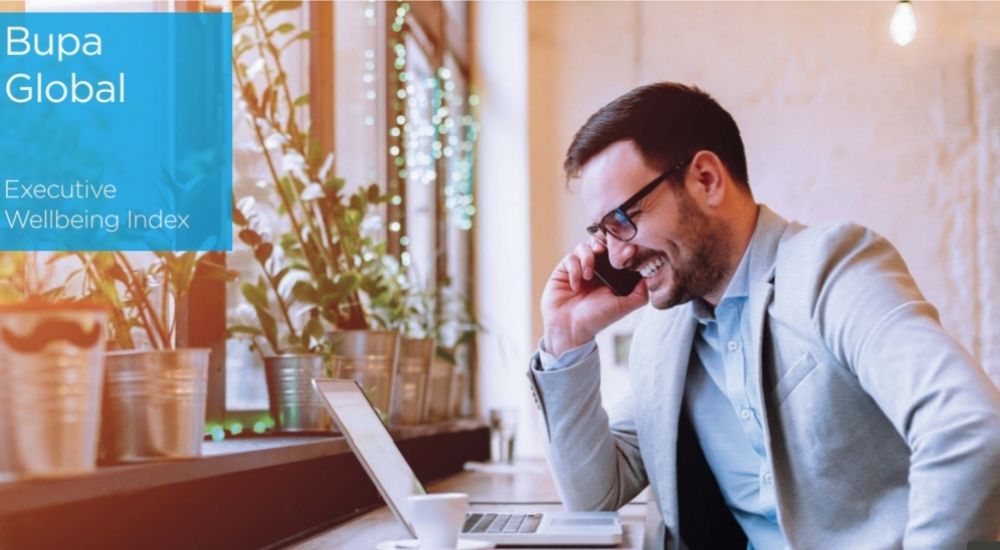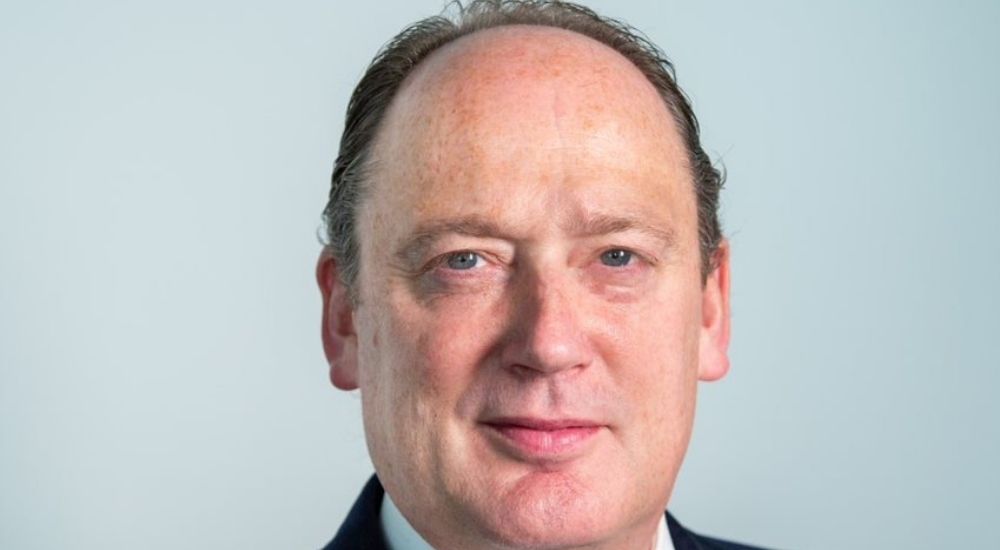73% UAE HNWIs believe companies yet to feel economic impact of pandemic, Bupa Survey

Bupa Global launched the 2nd edition of the Bupa Global Executive Wellbeing Index analysing the continued effects of the Covid-19 pandemic on the world’s high-net-worth community. The index, which surveyed over 1,200 HNWIs and senior business executives based across Europe, North America, the Middle East and Asia shows that despite concerns about economic recovery and mental health, global executives have been quick to redefine existing working models and re-align corporate values in order to future-proof their businesses.
Dean Pollard, General Manager of Bupa Global for the Africa, India and Middle East- BGAIM said, “As UAE business leaders navigate through the Covid-19 crisis and into the ‘New Normal’, there has been a renewed focus at the organisational level on employee wellbeing and environmental, social, and governance values. But while the UAE government’s proactive approach to the pandemic has allowed the country to enjoy a more comfortable position than most, this year’s data has unearthed some of the anxieties and uncertainties that lie beneath the surface.”
Economic Outlook: Not out of the woods yet
The report revealed that, compared to the optimism expressed in 2020, HNWIs in the UAE are still uncertain about the prospect of global economic recovery. 73% believe that their companies are yet to feel the full economic impact of the pandemic, compared to the global average of 9%. This comes as a contrast to their confidence in 2020, when 88% held the opinion that the economy would rebound strongly. This sense of caution extends to the global economy as well, with only 9% expecting a full economic recovery, compared to 20% globally across surveyed counterparts in Egypt, the United Kingdom, the United States of America, France, Singapore, China and Hong Kong.
On this shift in the economic outlook, Pollard said, “Much of the optimism we noted in 2020 among high-net-worth individuals has since been tempered with caution, partly due to the fact that much of the world is still struggling to cope with this pandemic, thus impacting global markets. As we enter the final months of 2021, there is a prevailing sense that while the worst is behind us, we are not out of the woods yet when it comes to economic recovery.”
Mental Health: Persistent challenges require persistent solutions
While the UAE has taken the lead globally in terms of Covid-19 vaccinations and re-openings, the study has shown that the pandemic is still very much at the front and centre of our attention. Despite relatively low rates of infection and death, high-net-worth individuals are more worried than they let on with almost all 96% reporting at least one symptom of mental stress which is the highest of all regions surveyed, and significantly higher than the global average of 77%. 76% cite the continued threat of the pandemic as well the efficacy of vaccines on a daily basis, followed by pressure on personal relationships 74% and work-life balance 68%.
With the mental health conversation becoming more normalised in the UAE, high-net-worth individuals were also recognised for being the most proactive in dealing with their challenges, with 96% having made life changes to manage or prevent their mental health concerns- the highest level reported globally and, again, significantly higher than the global average 84%.
Remarking on the mental health aspect, Pollard said, “It is encouraging to see that, despite personal hardships and uncertainties brought on over the past year, high-net-worth individuals in the UAE have taken their mental health and wellbeing into their own hands, focusing on exercise, relaxation, and proactively seeking the help they need through their insurance companies and virtual services.”
Work-Life: Flexible working is here to stay
Compared to most regions, companies in the UAE have done more in the past year to encourage wellbeing among employees, in part by re-evaluating existing working models. Workplace wellbeing initiatives were a key priority in the UAE, with 77% of organisations having initiatives in place, and a further 19% planning to introduce more in the near future.
Amongst all the changes, flexible working was the most preferred among 74% in the UAE. In 2021, many organisations adopted a hybrid work model – splitting between remote work and in-person collaboration at offices. Pollard commented, “These changes didn’t occur in a vacuum but as the result of a shift in perspective among business leaders in the Middle East. Our study revealed that 69% of high-net-worth individuals recognised the increased responsibility organisations have to provide wellbeing support to their teams. With that said, among UAE business leaders, we still note a strong desire for a return to normalcy.”
Only 12% want their organisation to conduct more meetings and important business remotely, compared to 26% globally. And a mere 6% want to see the pace of digital transformation increase, again, significantly below the global average of 28%. Pollard remarked, “Hospitality and networking are fundamental elements of business practice in this region, which may explain why high-net-worth individuals would see little value in reducing face-to-face meetings.”
Changing corporate values
The most striking change when analysing the ‘New Normal’ in the UAE is a shift in corporate values towards environmental, social, and governance. Three out of four 73% in the UAE recognise the importance of ESG and want to see their company do more towards balancing profit with the purpose 73% and furthering the environmental agenda 72%, significantly higher than the global average 35% and 34% respectively.
This year’s study also revealed a difference in how high-net-worth individuals value corporate leadership qualities, where self-awareness and awareness of bias were the most prized CEO qualities, and rated important by 70%- more than twice the global average of 32% and 24% respectively. They also put a far higher value on empathy- 69%, compared to 41% globally. However, only 10% thought CEOs are now expected to show greater empathy, compared to 27% globally.
Remarking on this change, Pollard says, “Looking at softer leadership skills, it is interesting to note the differences between what CEOs are expected to do at the organisational level and what high-net-worth individuals would like to see on a personal level. Compared to other regions, there may yet be some hesitation in openly acknowledging empathy as a core value at corporates, but this does mark a significant change in thinking here in the UAE.”






